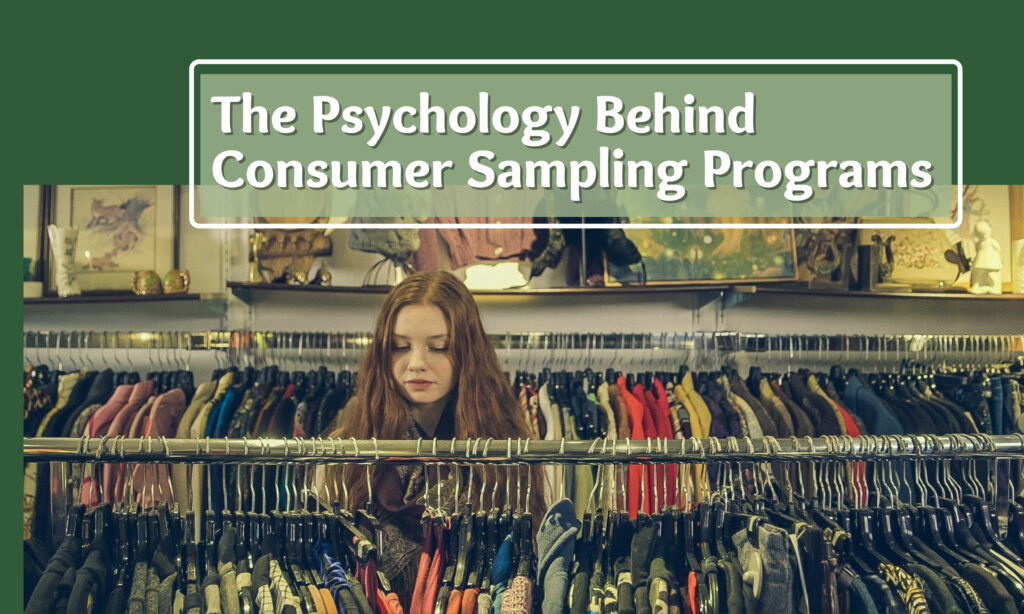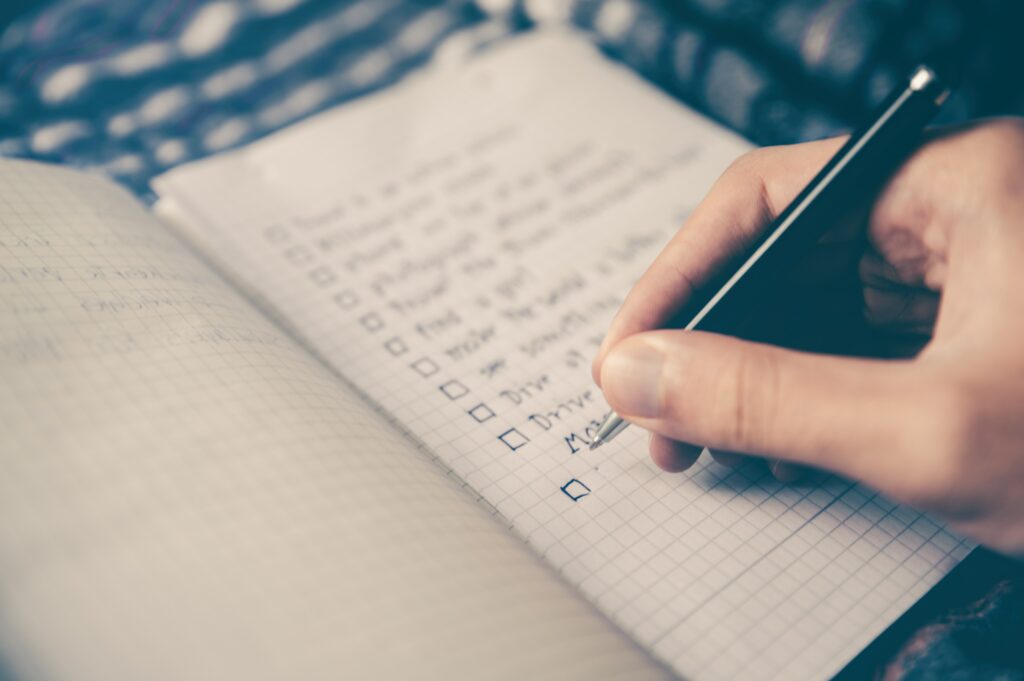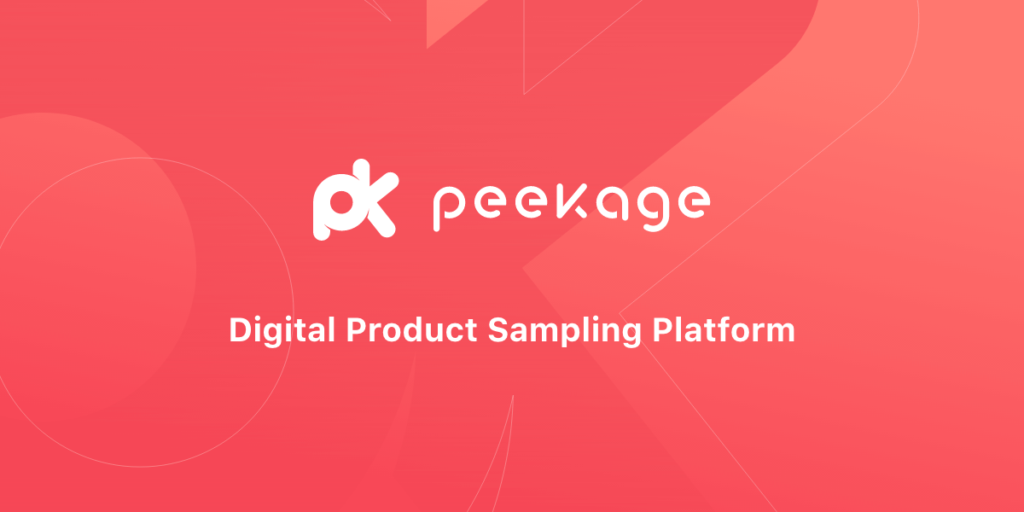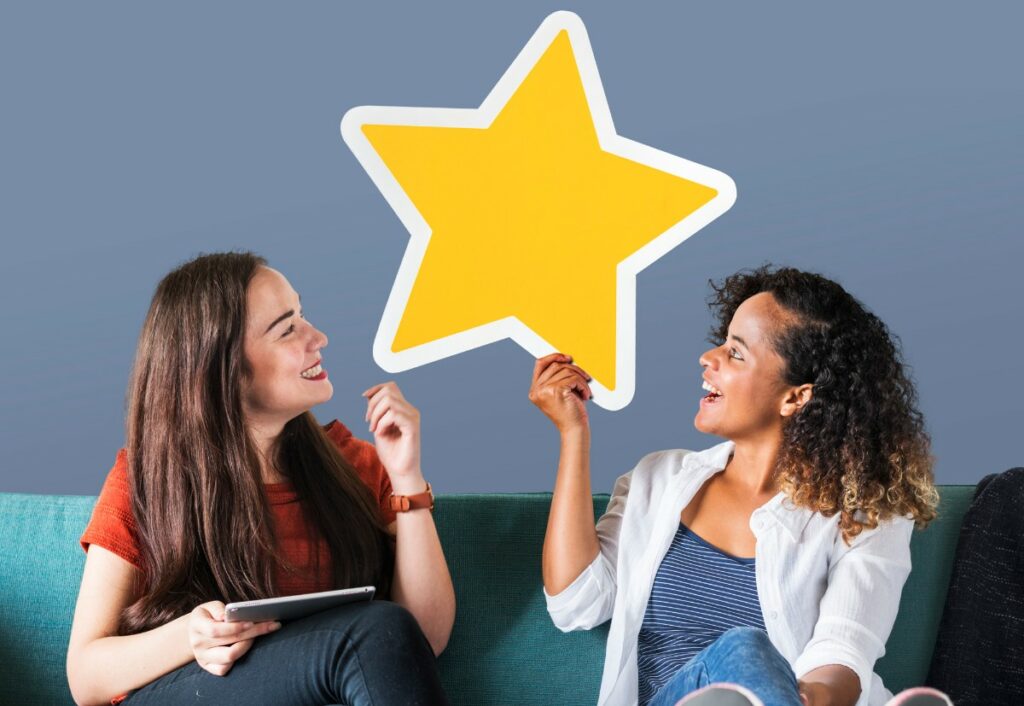Product sampling has become a leading marketing tool for most CPG businesses, but few people know what makes the consumer sampling programs effective.
Understanding the product sampling psychology and the root of why sampling works can help businesses:
- Enhance their product sampling strategies
- Craft and implement better product sampling campaigns
What's the science behind consumer sampling programs?
Understanding the product sampling psychology can really help both direct-to-consumer (D2C), and in-store brands boost sales and introduce new products into the market.
By understanding the "psychology of free Stuff," your brand can influence consumers' immediate purchase behavior like never before.
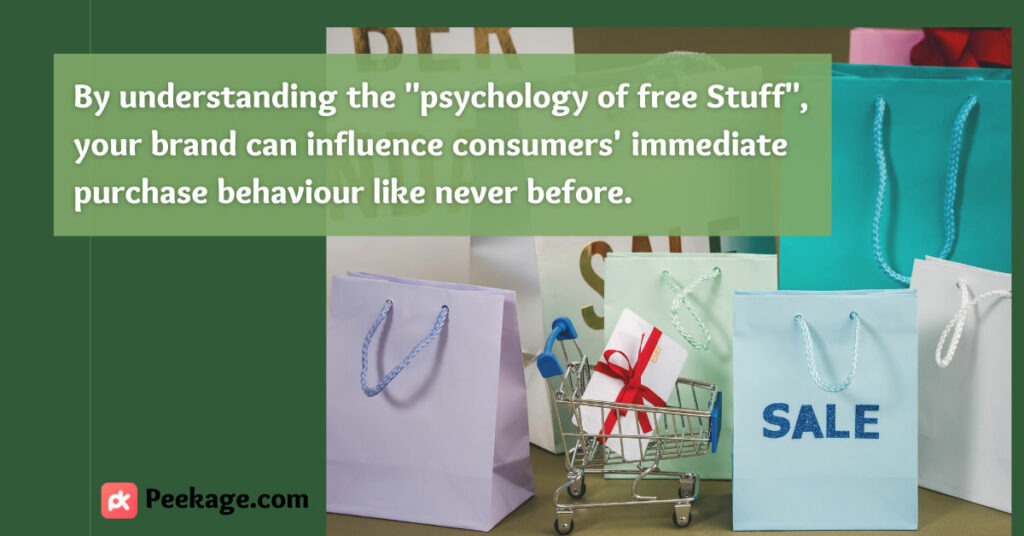
These are significant consumer insights that explain precisely why a traditional or digital product sampling campaign can benefit your business and magnify the success of your brand's marketing objectives:
1. Product sampling can change the perception of your brand
A 2004 study published in the Journal of Retailing measured the impact of product sampling on users' perception of a brand. The results showed that users who sampled a product before buying it perceived the said brand as of higher quality than the brands that did not offer product sampling.
Another 2007 study in north Africa, also concluded that running a product sampling campaign has positive effects on brand image, on both tangible and intangible metrics. Therefore, simply by having a product sampling campaign, you show that you are confident about your product, and it immediately puts it higher in the minds of buyers who look for good qualities.
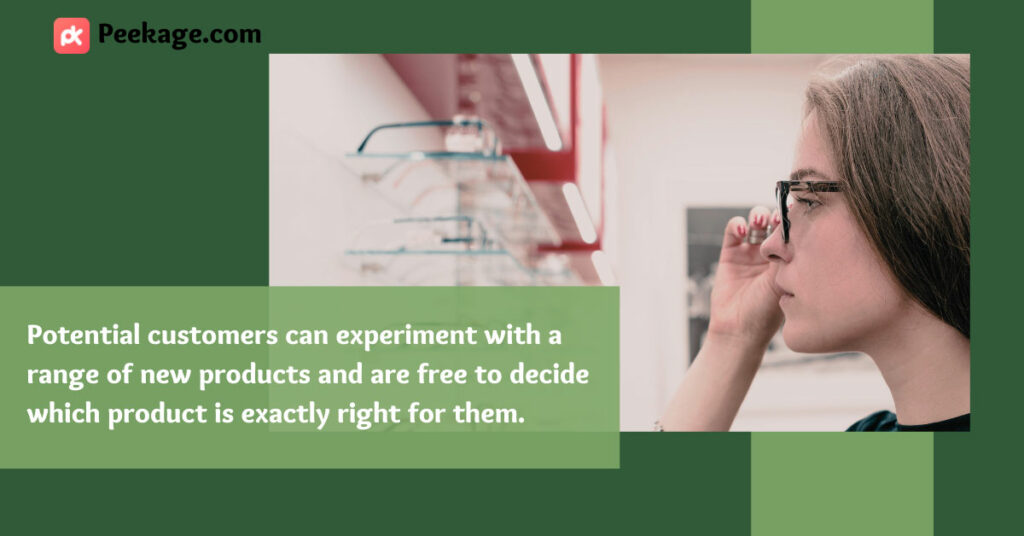
2. Product sampling plays on the availability heuristic
The availability heuristic is a mental shortcut that comes in handy when we want to evaluate a topic, a concept, or a product. Our brains are wired to think that whatever we can recall is important, and we tend to recall what is available to us and we have experienced first hand best.
By giving out free samples, you capitalize on this brain bias. Free samples make your brand available, and therefore important and memorable for buyers. And when buyers want to choose between different brands, they go with the one that they remember first.
3. Product sampling leverages the anchoring effect
Anchoring is another cognitive bias that makes us rely too heavily on the first piece of information we are given about a topic. The first piece of information a buyer receives from a product plays an important role in the process of decision making.
When a brand offers free samples, the first piece of information communicated to buyers is "Try me out, no commitment! that's how good I am". Product sampling makes buyers build a personal relationship with the product, and the anchoring effect makes them value that relationship above all information later on.
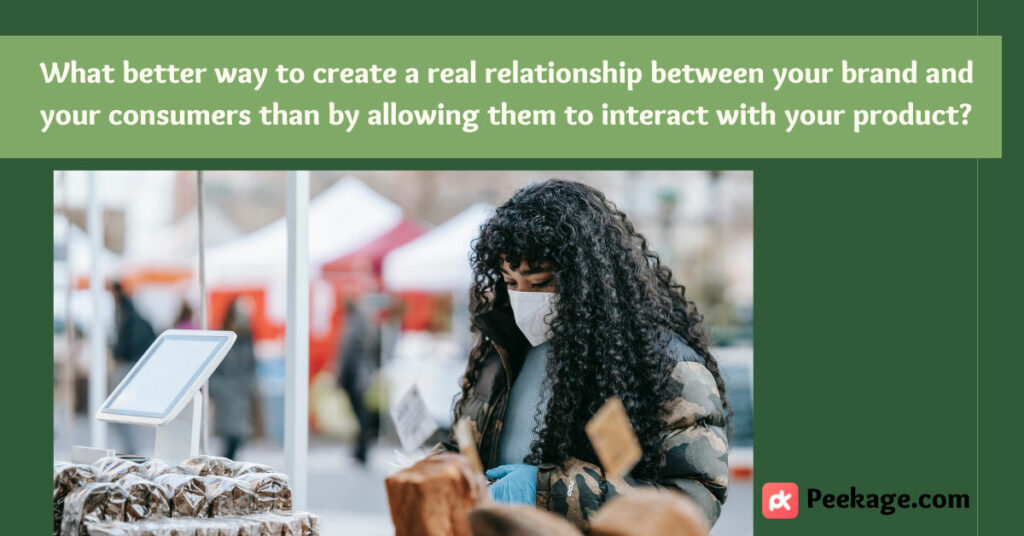
4. Product sampling uses zero risk bias
Certainty effect or zero risk bias is another brain bias that makes us favor paths that seem to have zero risks. Free samples let buyers try out your product with zero risk or commitment. This feeling of zero risk is very much appreciated by the buyer, especially when it comes to new products.
5. Product sampling is in alignment with the endowment effect
The endowment effect is yet another cognitive bias that makes us assign more value to things we own. By offering free samples of your products to customers, you create a sense of ownership in them, and by extending assign more value to your product in their brains.
One strange thing about the endowment effect is that people tend to pay more to keep what they have than to get something brand new. Even when there is no cause for attachment to an item or when they've got the item just a few minutes before, the endowment effect kicks in and convinces them on your behalf to make a purchase. This bias is connected to status quo bias, when you've got something, you don't want to give it up.
6. Product sampling taps into our desire to return favors
People have a natural desire to treat others well, pay back their debt and return favors. This phenomenon is also called reciprocity bias and works both ways. We'd like to return kindness with kindness, and a slap in the face with another slap in the face!
So guess what happens when you offer free samples to customers that have the natural urge to pay you back? That's right, they are more likely to buy your product now that you've been so kind as to offer them a free sample.
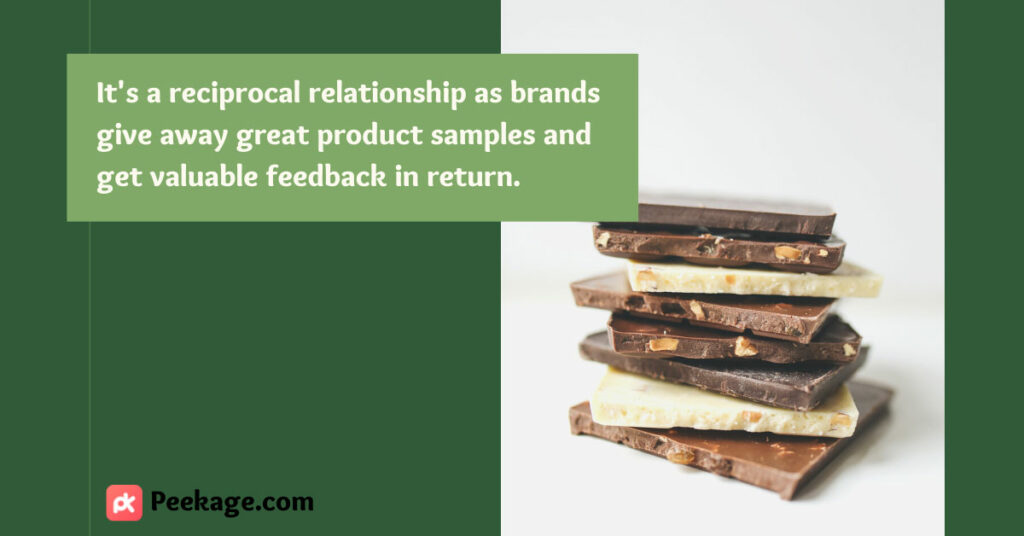
Related Article: Maximize the Success of Your Product Sampling Campaign
Current research on consumer sampling programs and product sampling psychology
- Changing directions: Product sampling could be the swing vote that encourages consumers to choose your product over various alternatives. As many as 24% of those who participated in a recent survey claimed that a sampled product had specifically replaced an item they had planned to buy.
- Brand trailing: using product sampling psychology and a strong consumer sampling program dramatically improves the chance of potential customers committing to your brand and purchasing your product post-sampling. Sampling has a strong effect on their post-sampling purchasing habits and feelings of brand loyalty. It increases the likelihood that consumers will continue to follow your brand rather than switch to another, down the line.
- Brand loyalty: Did you know that researchers have found that free samples encourage positive consumer sentiment towards the brand and influence consumers' purchasing behavior for as long as 12-months post-sampling? Amazing, right?
- Provoking a sense of goodwill: A consumer sampling program is the perfect way to allow consumers to feel the brand better. This product sampling psychology has shown that more consumers feel that they can better trust a product and are more likely to consider the brand as reliable after experimenting with a product sample first-hand.
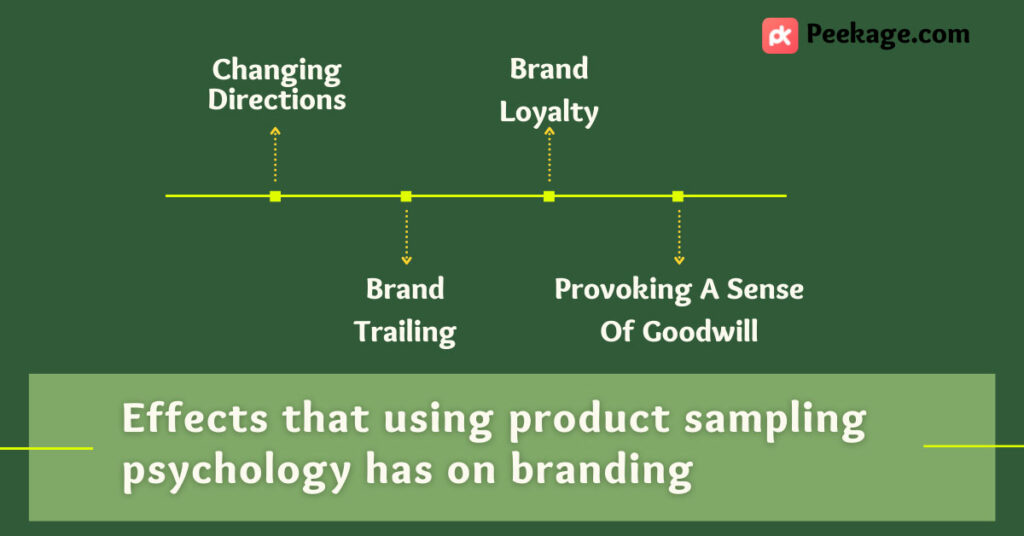
Why choose Peekage to coordinate your consumer sampling program?
- Peekage allows users to order free samples of your product to be delivered directly to their homes for testing.
This is a relatively risk-averse approach in product sampling psychology as consumers have little cost or time commitment from their side (since they can 'purchase' samples easily with their virtual currency on the app), and Peekage ensures that the logistics and shipping process are as low-cost as possible for your business.
- Peekage follows up with consumer post-testing.
Directing more attention towards consumer feedback and insights is a sure-fire way to create a personal connection with consumers. Consumers want to know that brands are listening to what they have to say, and gathering feedback from consumers will evoke a positive sentiment towards the brand while creating a strong sense of loyalty at the same time.
- Peekage rewards users on the Peekage app for their feedback with virtual coins for in-app purchases and promotional vouchers.
This is a great way to engage their reciprocity instinct and encourage them to provide valuable insight and reviews. Peekage also uses this consumers feedback to create actionable insights for brands to deliver better the type of products that their consumers are really looking for.
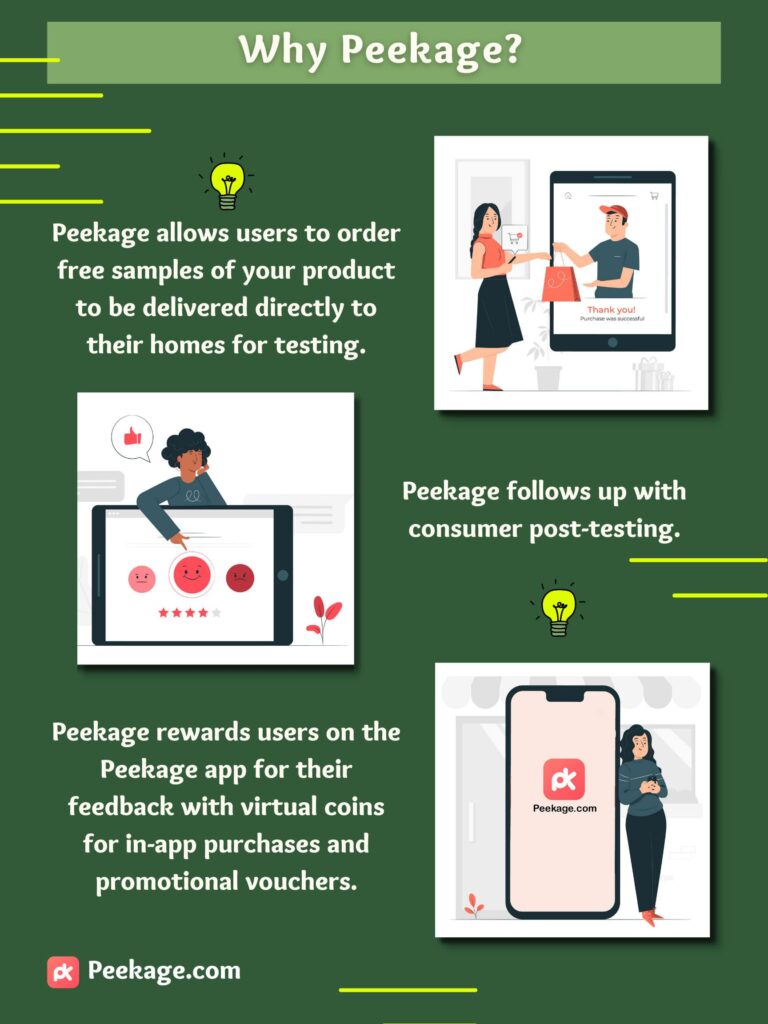
Understanding the product sampling psychology is one of the most effective ways to bring your brand one step closer to converting samplers into purchasing customers and forming long-lasting relationships with consumers. So, why not start your journey towards creating your own consumer sampling program today?
How can freebies keep customers?
Giving out freebies helps you and your brand gain new consumers and keep the ones you already have. Here are five reasons to give freebies to your consumers:
- Free samples create positive hype around your brand
Does it really need explaining? People love getting stuff for free. Giving out freebies to your existing consumers makes them happy and satisfied and more likely to talk about your goods and brand with their friends and family.
In essence, freebies add more value to the interaction between your consumers and your brand, increasing the likelihood of sharing their experience with others (again!).
- Freebies encourage consumers to try other products of your brand
Offering something for free diminishes the hesitation some people may have with trying out your brand's new products. Giving out free samples allows your existing consumers to test the quality of your other products before committing to your new line of production.
Then, If they are pleased with their experience, they will be more likely to test your new products.
- Giving out free samples improves consumer-brand relationships
We have covered this topic, but it needs some more emphasis! Excellent customer service can go a long way in making a successful brand. Unhappy customers are more likely to spread the word about their experience, but what if you could turn unhappy customers into happy ones?
Well, one way is offering them free samples and making them feel special again. Your long-time consumers like to be in the spotlight too!
- Free samples make your brand extra loveable
Suppose you have a great brand and a great relationship with your consumers, but could it possibly hurt if you put more smiles on the face of your buyers? By giving out freebies, you get to make your consumer's day and make them feel loved and cared for.
This elevates your brand in their eyes as one who is willing to go the extra mile! In a world full of competitive and professional brands, freebies help you to stand out and conquer the hearts of your consumers.
- Offering freebies encourage buying habits
When you are confident about the quality of your products and your customer service "as you should be" then offering free samples is going to be your best ad campaign. If an existing consumer is pleased with a product, there is a high probability that they will be interested in purchasing other products in the future.
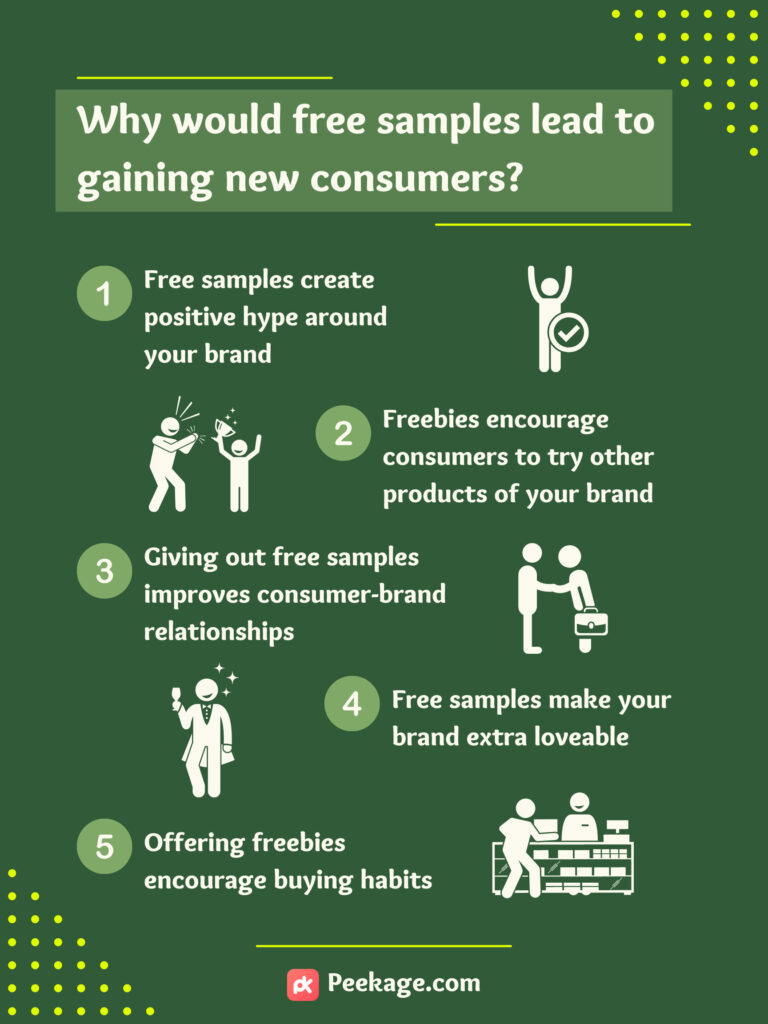
Making your current consumers happy is the key to securing a loyal customers-base that you can rely on.
The bottom line is, NEVER TAKE YOUR CURRENT CONSUMERS FOR GRANTED.
History of product sampling
You might think giving out free samples is a new method on the marketing block, but freebies have a long history.
In the 19th century, Benjamin T. Babbitt, who was a soap manufacturer, gave out free samples of his soap to skeptical people and made them into buyers. However, he wasn't the first person to do so.
A 14th-century poem by William Langland, by the name of "Piers Plowman," portrays innkeepers offering free samples to bypassers.
Conclusion
People like to receive freebies because it makes them feel happy and important. Therefore, giving out free samples is a great way to gain new customers and turn existing customers into loyal ones.
Participating in a product sampling program helps your brand elevate in users' eyes, as it promotes you as a brand that never takes buyers for granted.
Key takeaways
- Giving out freebies is a method of keeping your users satisfied, backed up by science.
- Freebies minimize the risk of buying new things for your customers.
- Receiving a free sample makes your potential, and existing users feel special and makes the bond between your brand and your customers stronger.
- You can build and alter buying habits by rewarding your customers with freebies, thus encouraging them to try out your new line of products or keep buying what they already do without being tempted to switch to other brands.
- Giving out free samples is an old method that has been renewed in recent years with the help of technology, now with a targeted audience
